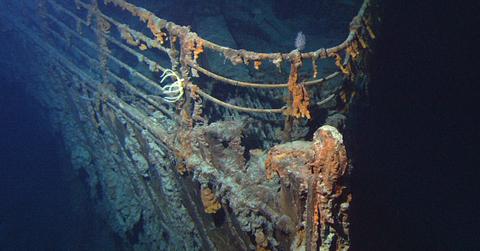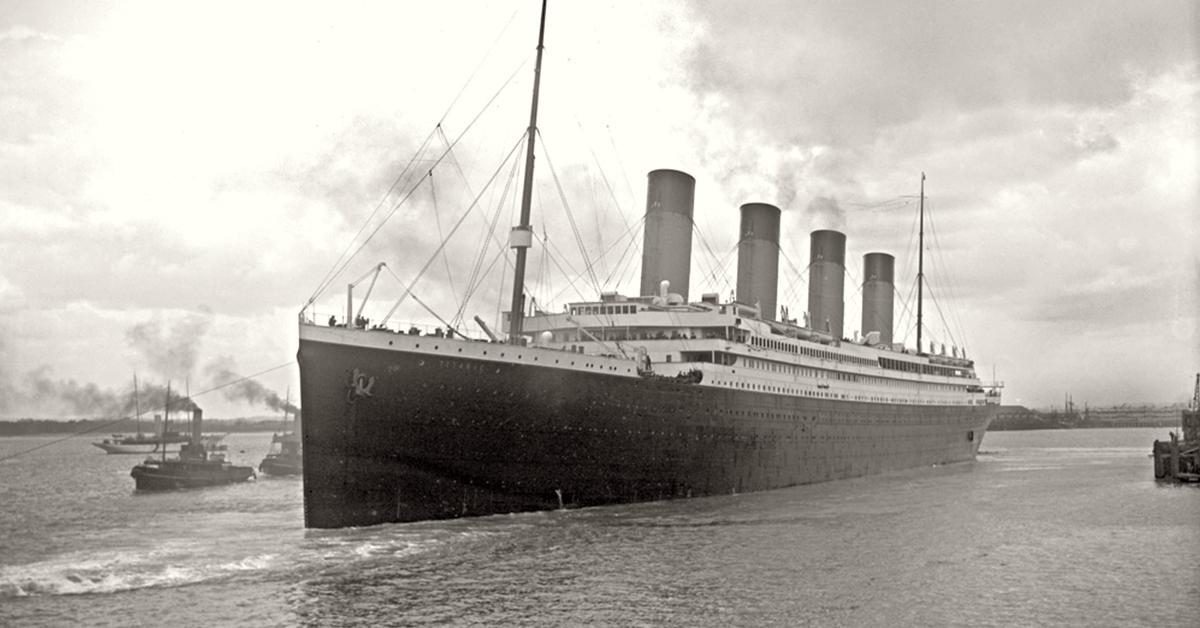The Titanic Is the Most Famous Ship in History, but When Will It Disappear to Time?
A combination of currents at the depths it lies at, the pressure of the ocean weighing down, and iron-eating bacteria are working together to tear the iconic ship to pieces.
Published April 10 2025, 9:15 a.m. ET
It seems eternal: the Titanic, nestled on the ocean bottom in its watery grave. It holds the secrets of human dreams and ingenuity and jealously guards the remains of both those humans and the possessions they brought with them on a journey that was once-in-a-lifetime and, tragically, became life-ending for 1,496 people.
Yet entropy is the nature of the world, and everything changes. Even though it seems to be sitting in an icy time capsule away from the ravages of time, the Titanic is wearing away, aging quickly as the ocean takes its toll on the enormous shipwreck.
So when will the Titanic disappear entirely? Here's what we know about the ship's second demise and why people are still so fascinated by its fate after more than a century.
When will the Titantic disappear?
When she sailed, the Titanic was a marvel of ingenuity and creativity. Enormous, swift, and filled with luxury, the Titanic promised to bring ocean travel into the future, taking an old way of exploring the world and making it new.
Yet on April 15, 1912, a combination of speed and the unfortunate drift of an iceberg shattered the dreams and the ship, tearing it asunder and sending it racing for the sea floor, where it has been sitting for over a century.
The journey to the Titanic, over 12,500 feet below the surface off the coast of Newfoundland, is a perilous one these days and best left to unmanned robotic explorers.
Historians and oceanographers alike have studied the wreck, hoping to learn more about the ship's history and the way it has been touched by time. After all, there are shipwrecks we have found that are thousands of years old, so why is the well-built Titanic eroding away to nothing? The answer: the extreme environment it laid itself to rest in.
A combination of currents at the depths it lies at, the pressure of the ocean weighing down, and iron-eating bacteria are working together to tear the iconic ship to pieces, according to the BBC. The outlet reports that rust flows, sped by the bacteria covering the ship and the pressure of the ocean, are eating away approximately 0.12 to 0.2 tons of iron per day. They estimate the ship will fully disintegrate within 280–420 years.
Yet it seems likely that sediment from deep ocean currents will bury the ship long before it disintegrates, with much of the "iconic superstructure" gone by 2100, says microbiologist Anthony El-Khouri, who has worked closely with famed Canadian film director James Cameron to study the wreck (via the BBC).
Here's why people are still obsessed with the Titanic, more than 100 years later.
To learn that the long-lost ship is falling apart somehow has inspired feelings in people who are looking back through time a century away from when the ship went down. So why are people still so connected to and emotional about the Titanic?
The reasons are numerous.
There is, of course, the human aspect: nearly 1,500 lost their lives in what should have been one of the highlights of their life. While not everyone on the ship enjoyed luxury and fine dining, the ship itself was an experience and a momentous occasion, already one of those tales you tell your grandchildren even before its fateful adventure.
As Don Lynch, official historian of the Titanic Historical Society, explained to Reader's Digest, “People are fascinated by the Titanic today for the same reasons they’ve always been. The largest ocean liner in the world, on its maiden voyage, supposedly unsinkable, loaded with some of the most famous names of the day, hits an iceberg all on its own, and then sinks so slowly there is a lot of time for drama and heroism to be acted out. If it was written as fiction, no one would believe it could have actually happened.”
There's something morbidly fascinating about what it must have been like on that frigid night in April when everything that could go wrong did.
Human obsession with tragedy is nothing new, but the Titanic gives people a broad range of human experiences and tragedies to connect to, making it one of the most complex and varied modern disasters.
While simply remembering and honoring the Titanic won't bring it back, public obsession with the ship ensures that it will never be forgotten. That offers its own kind of immortality.

